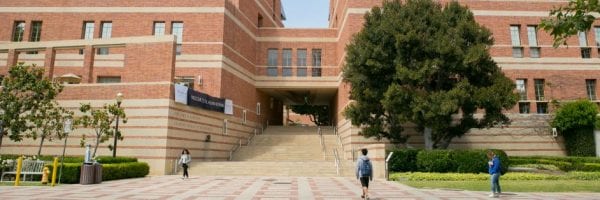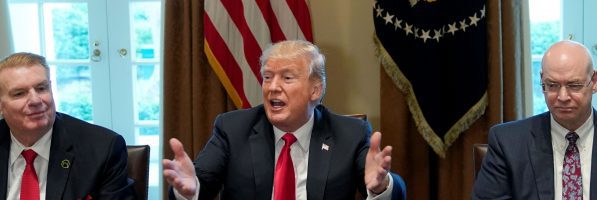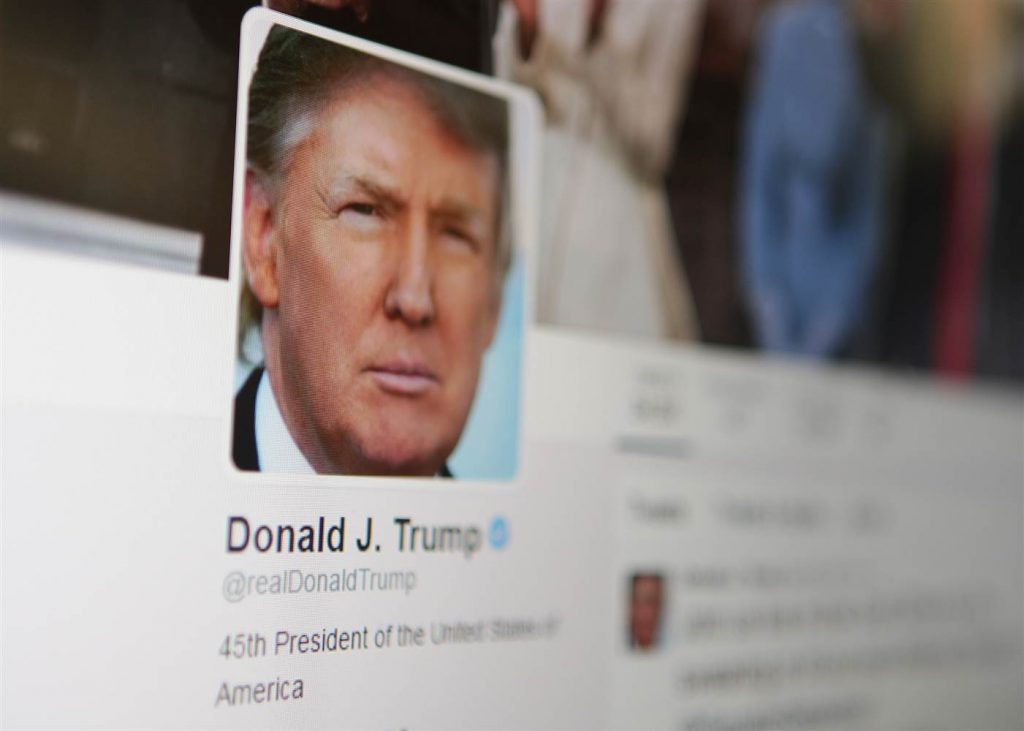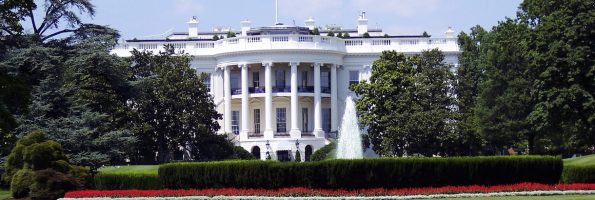Embracing Diversity at UCLA Anderson, Graziadio’s Commencement, and More – LA News

Friday, ya’ll.
Let’s dig into the biggest stories coming out of Los Angeles this week.
UCLA Anderson’s Hosts Annual Diversity Conference – UCLA Anderson News
UCLA Anderson recently hosted its annual Embracing Diversity Conference. The co-VP for diversity of the Anderson Admissions Ambassador Corps, Denice Gonzales-Kim, discussed her involvement with drawing minority applicants to Anderson in a recent blog post.
“As a first-generation graduate student,” she says, “I take great pride in participating in UCLA Anderson’s annual Embracing Diversity conference. I was reminded why, when deciding which business school to attend, many people gauge the school’s culture by its level of diversity.”

Previous attendees at the UCLA Embracing Diversity Conference / Photo via anderson.ucla.edu
Acknowledging the “embarrassingly low” numbers of diverse b-school students across the country, Gonzales-Kim expressed confidence in the efforts of the Anderson admissions committee to change this. The school draws applicants from a wide variety of socioeconomic groups, genders, orientations, and ethnicity, due in no small part to the efforts of Gonzales-Kim and others in the Ambassador Corps.
Assistant Dean of MBA Admissions and Financial Aid, Alex Lawrence, outlined the takeaways from the Conference – discovery of the school’s intellectual capital, understanding of the Anderson community which is “diverse from all angles”, and realizing the global reach of the Anderson MBA.
You can learn more about Anderson’s diversity efforts and the recent conference here.
Pepperdine Graziadio Honors Distinguished Alumni at Fall Commencement – Graziadio Newsroom
Pepperdine Graziadio held its fall 2018 Commencement Ceremony on December 8, 2018 at the Malibu campus’ Firestone Fieldhouse.
This year, the event honored Vincent J. Monteparte (MBA ’01) with a Distinguished Alumnus Award. Monteparte is a partner at Sway Ventures, a venture capital firm specializing in tech. From a background in aerospace and defense consulting, he pivoted to business operations, software development, and more.
Nicholas Brown, the event’s student speaker, shared his experience as an Air Force veteran. While serving, Brown served as an intercontinental ballistic missile crew commander. He currently serves as an instructor in the Air Force Weapons school, where he implements his core skills as a leader and problem solver that he has gained as an MBA student.
Gary Toebben, former President and CEO of the LA Chamber of Commerce, spoke about his experiences in generating business growth for one of the country’s largest economies. In his final two years, Toebben helped to generate $150 billion for such initiatives as transit improvements, municipal services, and housing for the homeless. He also helped to fund the nine colleges within the Los Angeles Community College District, and was a leader in implementing the LAX Master Plan.
You can read more about the commencement honorees and the rest of the recent event here.
USC Marshall’s Speaker Series Hosts Former Assistant Secretary of State – USC Marshall News
In an interview with Dick Drobnick, USC Marshall IBEAR MBA Program Director, former Assistant Secretary of State Danny Russel discusses, among other things, his experiences with diplomacy. Russel served under John Kerry, and also served in the State Department into the early months of President Donald Trump’s administration.

Former Assistant Secretary of State Danny Russel sits down with USC Marshall’s IBEAR MBA Program Director Dick Drobnick, discussing his roles under Donald Trump, John Kerry, the trade war with China, and much more / Photo via marshall.usc.edu
On the current trade war with China, Russel views that this is the “new abnormal.” Strategic rivalries, he believes, are better dealt with through diplomatic efforts than with the restrictions currently at play in the Trump administration.
Among the other issues the interview covered were cybersecurity and the dynamics of authoritarian regimes. You can listen to the interview and learn more about the IBEAR MBA speaker series here.
Harvard Faculty Discuss Recent Chinese Tariffs, and More – Boston News

Let’s explore some of the most interesting stories that have emerged from Boston business schools this week.
Trade War or War of Words? – Harvard Business School Blog
Following the Trump administration’s recent announcement of 25 percent tariffs on 1,000 Chinese exports, Bill Kirby and Willy Shih, Harvard Business School faculty experts on China, took to the HBS blog to “trade theories on the best path forward for the world’s two largest economies.”
Both experts point to economic shifts in the 1980s, which, not incidentally, was the decade in which Donald Trump started to become a household name. Kirby notes that the major trade distinctions between the United States and Japan, specifically regarding the auto-manufacturing industry, set a precedent. In that, the United States began to firmly invest in Japanese car companies like Honda and Toyota, building their own domestic manufacturing plants. Kirby suspects, however, that the Trump administration may not be as open to that kind of investment. “If Chinese companies wanted to improve access to American markets by investing in the US, would the administration be open to it?” he asks. “They ought to be, in my view. But my suspicion is that that’s not the outcome that this administration is looking for. They’re looking for a miraculous recovery of American-based manufacturing exporting to a Chinese market, not a particularly good match.”
Shih, staying on the topic of the ’80s, offers a different opinion, saying; “I think the real issue is industrial policy on the Chinese side competing with a lack of industrial policy on the U.S. side and the consequences of that. Going back to the mid-1980s, the Chinese government has been mapping a pathway for the country to become a modern country (just as the Koreans, Taiwanese, and the Japanese did before, except on a much larger scale). The Chinese have identified core capabilities that they want to see inside the country, and they’ve been methodically working on that over the last 30-plus years. I’d argue the positive trade balance with the US reflects the progress they’ve made.”
You can read the full conversation between Kirby and Shih here.
An Easy Internship Trick from Kayla Humel ’18 – Simmons Blog
Current Simmons School of Management student body president Kayla Humel, ’18, wrote candidly about the impact of the Student Government Association (SGA) on her recent internship at Puma and future career plans.
“First and foremost, [SGA has taught me] the power of good communication. When the e-board is communicating with one another, event planning is exponentially easier. When SGA is communicating with organizations, processes like budgets occur seamlessly. Good communication is crucial to success in any organization.”
Humel threw her hat in the presidential race because she “saw opportunities to improve processes between SGA and the other organizations on campus. I knew that SGA could create change on campus and I wanted to play a major part in that.”
You ca check out more about her Simmons experience here and watch an interview with Humel about her internship below.
Wield Polarization to Build Positive Change – MIT Sloan Newsroom
MIT Sloan School of Management sustainability initiative director Jason Jay used his recent TEDx talk as an opportunity to share some strategic advice on how to more effectively spark difficult conversations. “The voltage feels so high that we simply avoid conversations out of fear of getting shocked. But I like to think about that polarization as a kind of energy.”
- Draw a contrast between what others might expect you to do and what you’re really trying to do.
- Clarify the values underlying your positions, and do the same with the people you’re talking to.
- Make it clear that you aren’t meeting simply to bargain over these values, but to embrace tension and find new ideas.”
You can check out Jay’s TEDx talk at Hofstra University below and learn more about his work here.
Boston News: Northeastern Explores Trump Tweets, MIT Offers FinTech Advice and More

Let’s explore some of the most interesting stories that have emerged from Boston metro business schools this week.
Can A Trump Tweet Dramatically Sway A Company’s Value? – Northeastern’s D’Amore-McKim Blog
Will Clark, DMSB ’17, along with Northeastern University D’Amore-McKim School of Business finance professors David Myers and Jeffery Born, sought to understand the impact that President Trump’s tweets—which often directly address publicly traded companies like Ford, Toyota, Walmart, GM, and Boeing—had on their stock market value.
“Past presidents communicated through the media. This was the first time that a president was communicating directly with the public—with investors—about companies. We really weren’t sure what to expect from the data,” says Clark, who is now a credit analyst with Morgan Stanley.
The trio’s research found that Trump’s tweets, in fact, did have some impact on companies, often increasing trade volume within the first few hours and days after he references them on the social media platform. The research was revealed in the academic journal Algorithmic Finance.
“The team found that Trump’s tweets dramatically increased trading volume for the companies’ stocks in the first few days following a tweet. They also found that positive (or negative) tweets about companies increased (or decreased) the firms’ stock prices by a modest amount—just 1 percent. But the changes were only temporary: Within a few days, the firms’ trading volumes and stock prices returned to pre-tweet levels.”
The lasting effect, however, was found to be longing. The trio notes that the most active traders, which they refer to as “noise traders,” were very reactive to Trump’s words, with trading tapering off after only a few days.

“They’re regular people and under-informed investors who want to get in and out and make a buck without thinking too long and hard about it,” Born notes about the financial impact of Trump tweets.
You can read more about the financial research on the Trump tweets from D’Amore-McKim here.
3 Lessons To Keep In Mind When Starting A FinTech Venture – MIT Sloan Newsroom
MIT Sloan School of Management MBA alum Sophia Lin, ’12, and her partner Andrew Kelley of the FinTech startup Keel, which connects “rookie investors with more seasoned ones,” shares some hard-won lessons in an op-ed for the Sloan blog. First of all: beware of hidden costs specific to FinTech. “
“Starting costs are higher than other industries because of data, infrastructure, and security requirements,” Lin said. “Data is expensive, which stops a lot of early stage startups from entering this field. But you need data to build your product.”
Read all of Lin’s words of wisdom here.
More CEOs Have Begun To Take Social Responsibility Seriously – HBR
CEOs from Facebook’s Mark Zuckerberg to Blackrock’s Larry Fink have begun to take very public stands to address the long-term impacts their products have had and continue to have on communities and the environment.
“We are witnessing a big, transitional moment—akin to the transition from analog to digital, or the realization that globalization is a really big deal. Companies are beginning to realize that paying attention to the longer term, to the perceptions of their company, and to the social consequences of their products is good business.”
Harvard Business School John and Natty McArthur University Professor Rebecca M. Henderson also explains that there are distinct differences between the size of a company, which often contrasts with the social goals of the company. The larger the company, the more long-term the outlook, she explains. Unlike small companies, larger firms worry about quarter-to-quarter results less.
“Big firms can also internalize certain externalities. An externality is a cost from a transaction that doesn’t fall on the buyer or the seller. If I pollute the air to make a product I sell to you, the cost of that pollution is spread out across society, and isn’t incorporated in the price I charge you for the product. Externalities pose problems for markets, since neither buyer nor seller have any incentive to deal with the costs. But sometimes, for really large firms, things work differently.”
The unfortunate causality, she notes, is that we are often reliant on the largest companies to take the initiative for causes that may be considered part of the global good. If some companies among the Fortune 500 elect to, say, go carbon neutral within the next decade, that can have a profound impact on other competing companies. And if those initiatives are not as profitable, there is an even greater risk of other companies being reluctant to attempt similar efforts.
Read more about the growing CSR trend among CEOs here.
How Rutgers Encourages Startups to Combat Sexual Misconduct

As Silicon Valley startups continue their apocryphal rise, an avalanche of sexual misconduct allegations has emerged. Rutgers Business School recently discussed the issue, arguing that high-ranking figures in the industry should sign a “No Go, Bro” clause, putting pressure on investors and board members to actively combat any and all misconduct.
As more and more victims of sexual misconduct publicly speak out against their perpetrators, and the Cosby’s, O’Reilly’s, Ailes’, Weinstein’s, and Trump’s of the world are forced to shed the cloak of darkness, the pressure is on for other industries outside entertainment and politics to address toxic work environments that silently condone harassment.
This is especially true in Silicon Valley, where recent high-profile sexual misconduct cases like Social Finance CEO Mike Cagney, UploadVR’s Taylor Freeman, and the recent suit VC firm Benchmark filed against Uber’s Travis Kalanick suggest an end to investor passivity.
The article outlines specific ways that investors can use its decision-making process to affect change from the top. For starters, boards need to establish clear guidelines regarding workplace culture, behavior, and ethics. When abuses of power are built into the very fabric of a company, it becomes easy to normalize misconduct.
Investors need to incorporate contractual language to prevent touchy-feely CEOs from walking away unscathed from a situation in which they misbehave.
“Before making a big investment in a startup, investors should use their power to require CEOs to sign a clause under which they forfeit a large proportion, or potentially all, of their stock, if fired for misconduct, including reasons such as sexual harassment and misrepresentations to investors.”
Ultimately, consumers need to send a clear message to the investors and boards of the companies we patronize that they have to “have to get beyond old-boy and young-bro Silicon Valley psychology [and] exercise their leverage to deter value-destroying misconduct.”
You can check out the entire Rutgers Business School article here.
Ivey Women Join Roundtable Discussion at White House For Women in the Workforce

During Prime Minister Justin Trudeau’s visit to the White House to speak with U.S. President Donald Trump, they—along with female business leaders from both countries—held a roundtable discussion about women in the workforce. According to The Globe and Mail, the goal of the discussion was to find “common ground with the new U.S. administration.” Invited to the discussion were two Ivey women graduates as well as a former Ivey dean. At the end of the roundtable, a White House official said the two countries would launch a new task force called the United States Canada Council for the Advancement of Women Business Leaders-Female Entrepreneurs. Continue reading…
Point Loma University Writes Letter to POTUS About Immigration

In early February, Point Loma Nazarene University President Bob Brower wrote an open letter to President Trump and Vice President Pence. In the letter, President Brower, alongside Jon R. Wallace, President of Azusa Pacific University and Jim J. Adams, President of Life Pacific College, spoke about the recent immigration policies. They asked President Trump to “consider the pain that these restrictions cause for many innocent people.”
